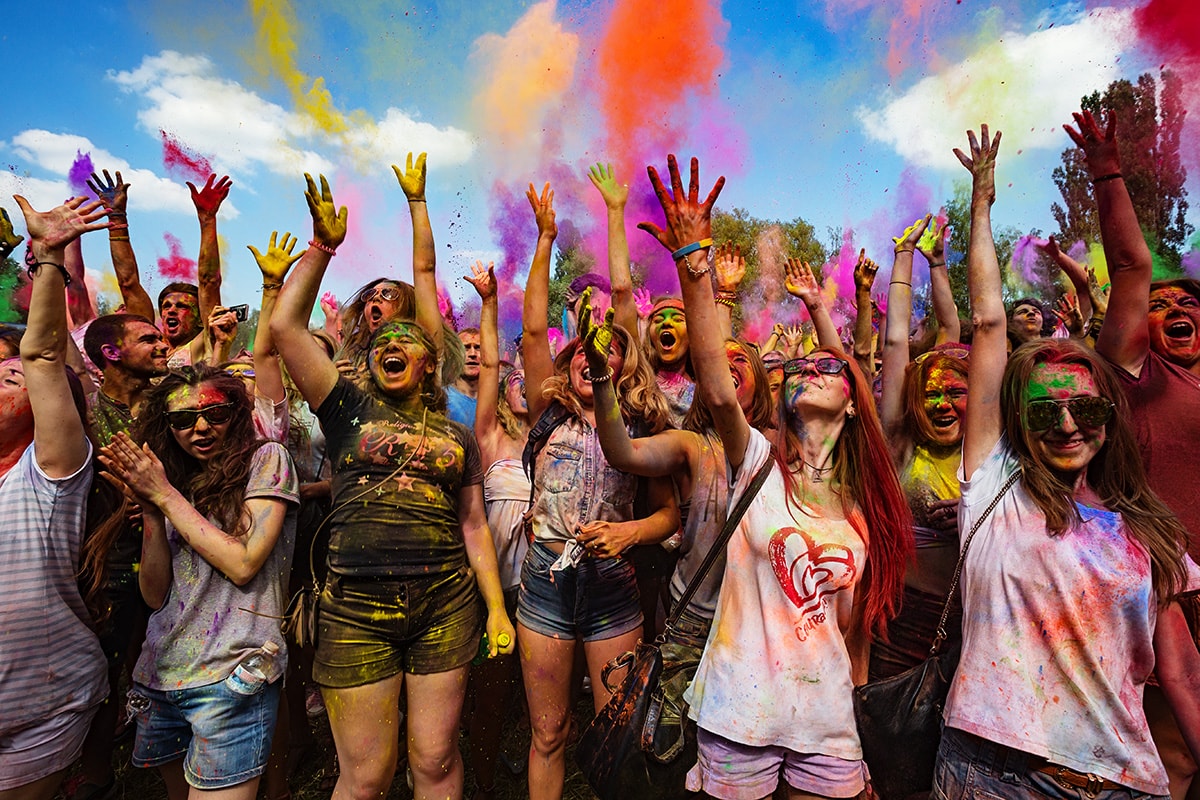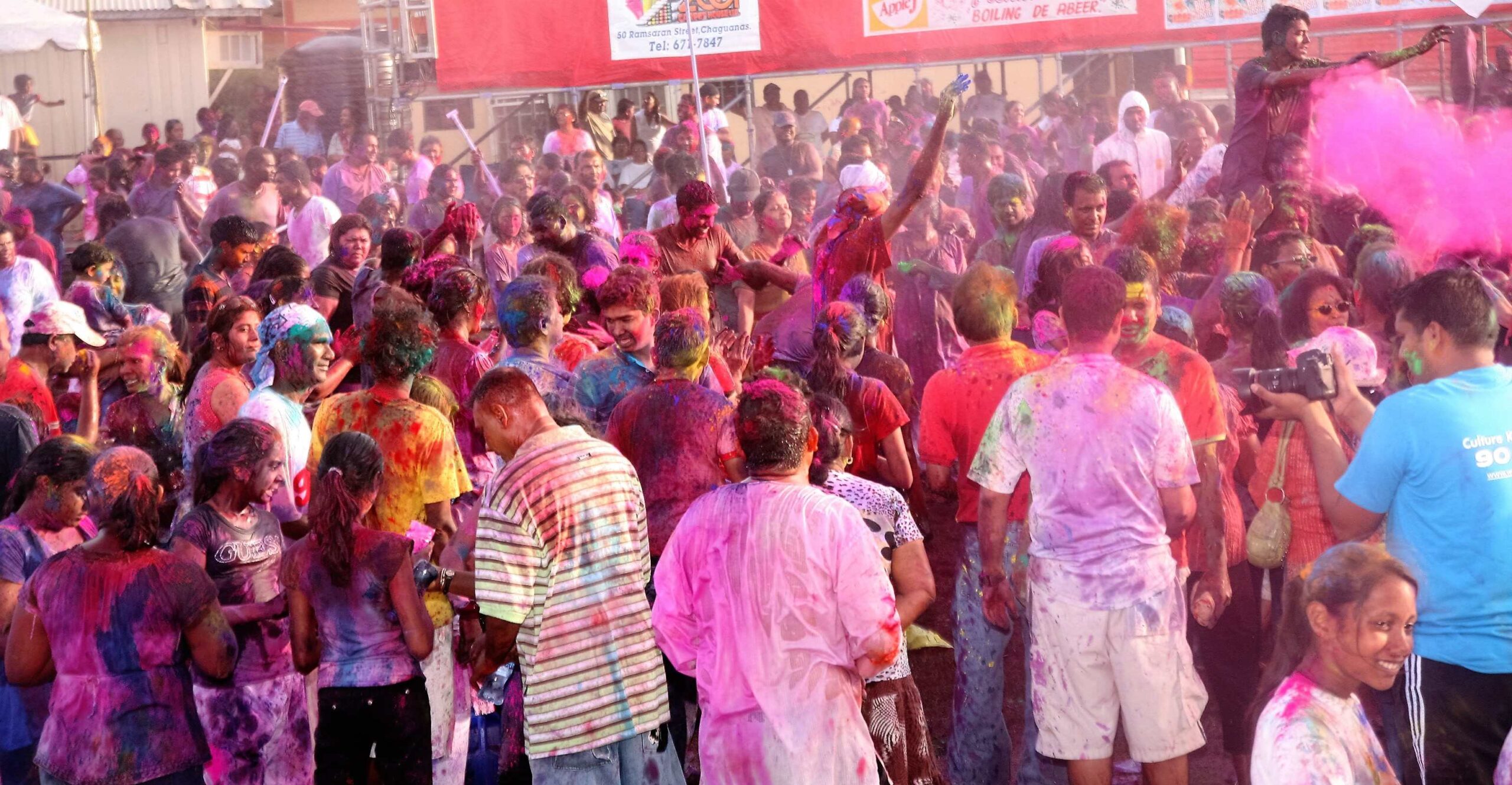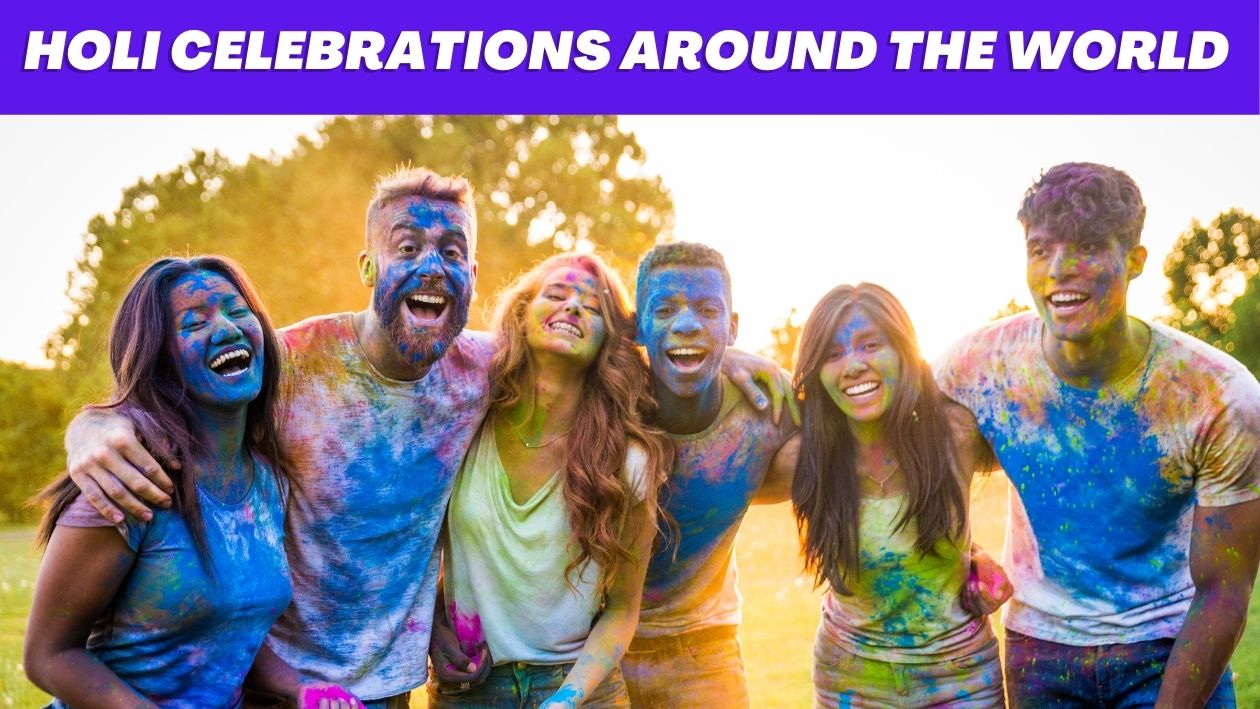Holi, the Hindu festival of colours, is one of the most joyful and colourful celebrations in the world. The festival marks the victory of good over evil, and the arrival of spring.
While Holi originated in India, it has now spread to many parts of the world, with people of all cultures and backgrounds joining in the colourful festivities. In this article, we will explore how Holi is celebrated in different countries and cultures.
Holi Celebration in different Countries
1. Nepal
In Nepal, Holi is known as “Phagu Purnima” or the “Festival of Colors.” The festival is celebrated for a week, with each day dedicated to a different aspect of the festival. On the first day, people gather to build a Chir or a bamboo pole, which is decorated with colourful flags and erected in the centre of the village. On the day of the festival, people gather to smear each other with colours, dance to traditional music and enjoy festive foods.

2. Sri Lanka
In Sri Lanka, Holi is known as “Pongal,” and it is celebrated by the Tamil community. The festival is marked by the making of sweet rice dishes, decorating houses with colourful rangolis, and lighting lamps. People also gather to smear each other with coloured powders and water.
3. Trinidad and Tobago
Holi is a popular festival in the Caribbean nation of Trinidad and Tobago, which has a large Hindu population. The festival is known as “Phagwa” and is celebrated with music, dance, and the throwing of coloured powders. The festival is also marked by the making of traditional sweets and snacks.

4. United States
Holi has become increasingly popular in the United States, particularly in cities with large South Asian populations such as New York and Los Angeles. The festival is celebrated with music, dance, and the throwing of coloured powders. Many cities also host Holi-themed parades and cultural festivals.
5. United Kingdom
Holi is also celebrated by the Indian diaspora in the United Kingdom. The throwing of coloured powders, traditional music, and dance performances marks the festival. In recent years, there has been a trend towards hosting eco-friendly Holi celebrations, using natural dyes and minimizing waste.
6. Australia
Holi has become a popular festival in Australia, particularly in cities with large Indian populations such as Sydney and Melbourne. The festival is celebrated with music, dance, and the throwing of coloured powders. Many cities also host Holi-themed parades and cultural festivals.
7. South Africa
Holi Celebrations in the Rainbow Nation: In South Africa, Holi is celebrated by the country’s Indian community, who gather to throw coloured powders and water, dance to traditional music, and enjoy festive foods. The festival is also marked by the lighting of bonfires and the burning of Holika effigies.
8. Canada
Holi Celebrations in the Great White North: Holi is celebrated by the Indian diaspora in Canada, with many cities hosting Holi-themed parades, cultural festivals, and community events. The throwing of coloured powders, traditional music, and dance performances marks the festival.
9. Mauritius
Holi Celebrations on the Island Paradise: In Mauritius, Holi is known as “Phagwah,” and it is celebrated by the country’s Hindu community. The throwing of coloured powders, traditional music, and dance performances marks the festival. People also gather to enjoy festive foods and drinks, including the popular Holi drink known as “bhang.”
10. Singapore
Holi Celebrations in the Garden City: Holi is celebrated by Singapore’s Indian community, who gather to throw coloured powders and water, dance to traditional music, and enjoy festive foods. The festival is also marked by the lighting of bonfires and the burning of Holika effigies. In recent years, there has been a trend towards hosting eco-friendly Holi celebrations, using natural dyes and minimizing waste.
11. Dubai
Holi Celebrations in the Desert Oasis: Holi is celebrated by the Indian ex-pat community in Dubai, with many events and parties taking place across the city. The throwing of coloured powders, traditional music, and dance performances marks the festival. People also come together to enjoy festive foods and drinks, and to share in the joy of this colourful celebration.
Importance of Holi
Holi is a festival that holds great cultural and social significance in India and around the world. Here are some of the key reasons why Holi is important:
Celebration of Spring
Holi marks the arrival of spring, which is considered a time of new beginnings, growth, and renewal. The festival is a celebration of nature’s beauty and the joy of new beginnings.
The victory of Good over Evil
Holi celebrates the victory of good over evil, which is represented by the story of Prahlad and Holika. The festival teaches us the importance of standing up for what is right and the power of faith and devotion.
Forgiveness and Reconciliation
Holi is a time for forgiveness and reconciliation, as people come together to forget past grudges and start afresh. The festival reminds us of the importance of letting go of negative emotions and embracing positivity and love.
Unity and Brotherhood
Holi brings people of all ages, genders, and social backgrounds together, breaking down barriers and fostering a sense of unity and brotherhood. The festival is an opportunity to connect with friends and family, and to build new relationships.
Cultural Significance
Holi is an important part of India’s cultural heritage, and it reflects the country’s rich history and traditions. The festival is an opportunity to celebrate India’s diversity and honour its cultural roots.
Overall, Holi is an important festival that celebrates the arrival of spring, the victory of good over evil, forgiveness and reconciliation, unity and brotherhood, and India’s rich cultural heritage. It is a time to celebrate life, love, and the joy of new beginnings.
Conclusion
Holi is a festival that transcends borders and cultures, bringing people together in a spirit of joy, unity, and love. Whether celebrated in the streets of India, the beaches of Australia, or the cities of North America, Holi is a time to let go of our differences and come together in a shared celebration of life. By exploring the diverse ways in which Holi is celebrated around the world, we can gain a deeper appreciation for the rich cultural traditions and customs that make our world such a vibrant and diverse place.
Read More –
Holi Photography: Capturing the Vibrant Spirit of the Festival
Popular Fashion Trends for Holi – Men, Women & Kids
Make Your Holi Special With These Tasty Recipes



